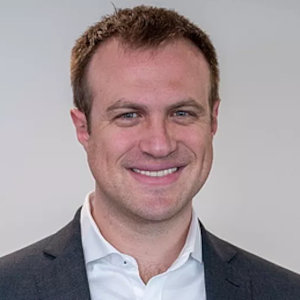
As co-founder and CEO of Rhino Health, Dr. Ittai Dayan is transforming the way healthcare AI solutions are created, adopted and measured. The Rhino Health Platform provides access to a large, distributed dataset from a diverse group of patients, powering models that deliver consistent results and, ultimately, improve health outcomes for large populations of patients.
Drawing on his background as a clinician and researcher, Ittai is passionate about creating equitable access to advanced AI-based diagnostics and treatment pathways – across increasingly diverse patient populations.
He led the world’s largest and most prominent study, utilizing federated learning (FL), published in Nature Medicine, the world’s largest and most prominent study, utilizing federated learning (FL). The EXAM study brought more than 20 healthcare institutions together, to train a healthcare AI solution on diverse data across institutions.
M.R. Rangaswami: What is Federated Learning (FL) and how is it improving healthcare and specifically precision medicine?
Dr. Ittai Dayan: FL is a machine learning paradigm that allows data scientists to train algorithms without exchanging underlying data. Rather than pooling data from multiple institutions into a central repository, federated learning involves training an algorithm on different ‘pools’ of data, blending only model weights, so that no patient data ever needs to leave a hospital’s firewall.
Artificial Intelligence (AI) for healthcare and lifesciences is well suited to FL, because it relies on patient data, which is highly sensitive, its usage is tightly regulated, and full anonymization of it can be difficult or impractical.
Without methods like FL, healthcare AI will only be trained on limited sets of patient data, decreasing the volume and diversity of patient data required to truly identify precision medicine. Precision medicine relies on algorithmic approaches, including AI, but requires that ‘models’ are trained on diverse data. This is especially an issue for rare diseases, or novel data modalities that are very ‘patchy’ and require accessing data from multiple providers. FL can help accelerate healthcare AI for the purposes of precision medicine.
M.R.: Coming from the healthcare field, was there any personal experience that brought you to found Rhino Health? What were the unmet needs you saw in the healthcare industry?
Ittai: As a clinician, I saw firsthand the amount of data that was generated by every patient interaction and how much of that was not accessible to be used for benefiting clinical care. While I was leading the development and deployment of AI models at Mass General Brigham, I oversaw many projects related to healthcare AI, many of which required access to diverse data to ensure robust model performance. To improve performance of a COVID-19 prognostication model, I led the EXAM study, published in Nature Medicine, which is probably the world’s largest and most prominent study to-date utilizing FL to train a healthcare AI solution on diverse data across institutions.
The understanding that FL can help break barriers to collaboration on data distributed all over the globe was eye-opening to me. Until then, it was considered too ‘sciency’ for the ‘real world.’ Rhino Health has proved that it is ready for prime time. We are turning this concept into a platform that would serve developers, clinicians and patients.
M.R.: What is the future of healthcare and precision medicine?
Ittai: The future of healthcare AI and precision medicine requires ongoing access to massive amounts of patient-derived biologic data and performing models that use that detailed data to predict diagnoses, aid in clinical decision making and predict outcomes, all in order to drive better care with better diagnostics, biomarkers and drugs that will be an improvement from the current standard of care. Federated learning will drive the future of healthcare, since it will be able to access sensitive patient data privacy in a secure and anonymized way.
M.R. Rangaswami is the Co-Founder of Sandhill.com
